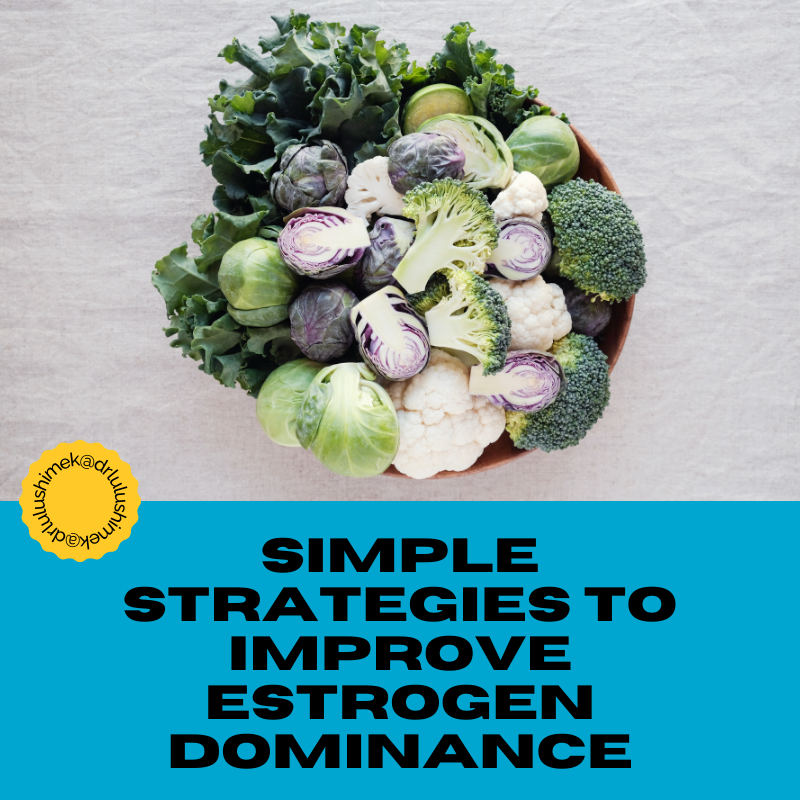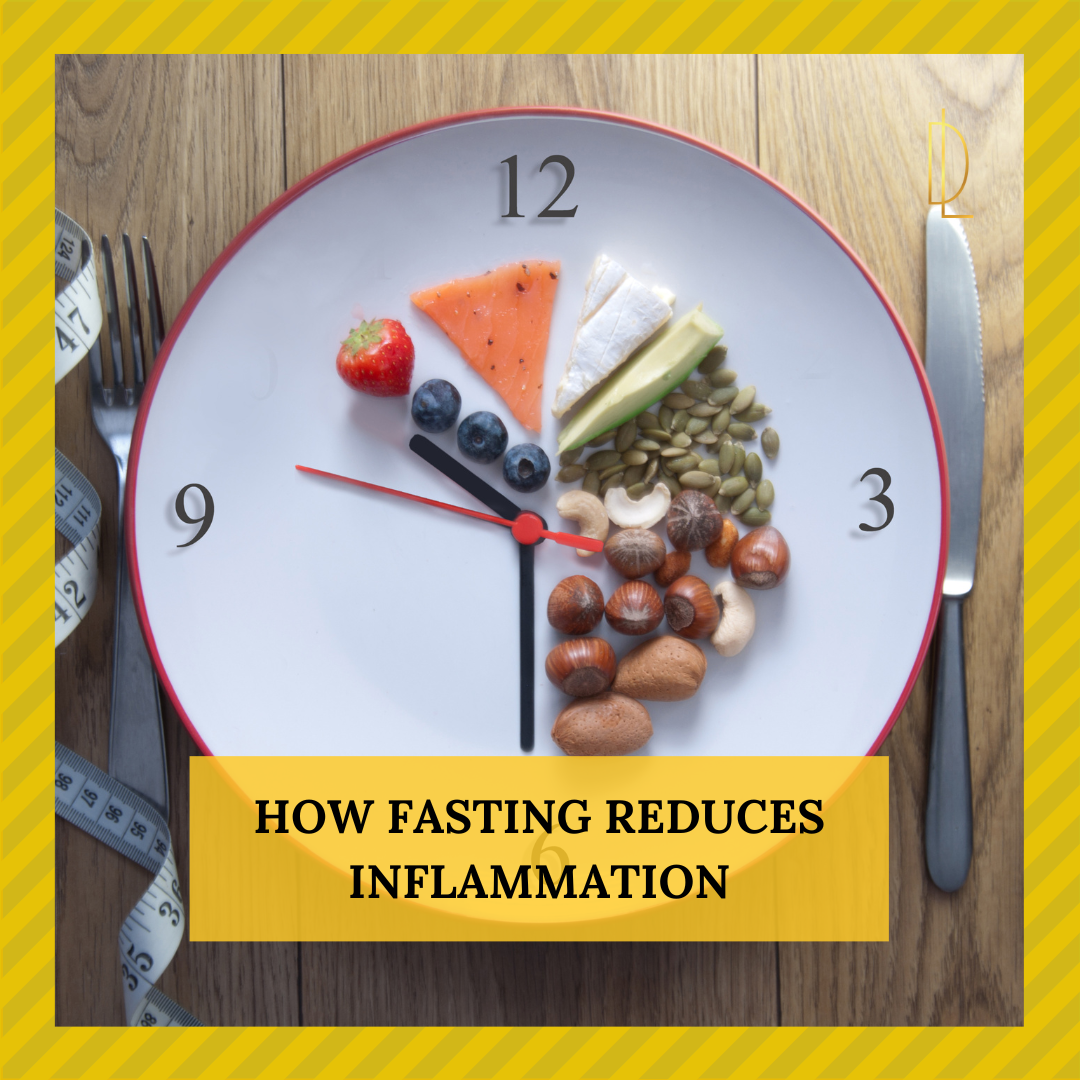Do you find yourself struggling to concentrate, forgetting important details, or feeling like your thinking is cloudy and muddled? If so, you may be experiencing brain fog, a common symptom that affects many women, particularly during times of hormonal flux such as perimenopause and menopause. While brain fog can be frustrating and even alarming, understanding the connection between estrogen and cognitive function can help you take steps to reclaim your mental clarity
Read MoreHormonal imbalances can manifest in various ways, from mood swings and fatigue to skin issues and digestive problems. While many factors can contribute to hormone disruption, such as stress, lack of sleep, and environmental toxins, diet plays a crucial role in maintaining hormonal bliss. Certain foods can trigger inflammation, exacerbate symptoms, and throw your hormones off balance.
Read MorePremenstrual syndrome (PMS) is a common condition that affects many women during their reproductive years. Symptoms can range from mild to severe and may include mood swings, bloating, cramps, fatigue, and food cravings.
Read MoreAs women navigate the challenges of hormonal changes, particularly during menopause, many seek out natural alternatives to conventional hormone replacement therapy (HRT). Two popular options are phytoestrogens and bioidentical hormones.
Read MoreWhen progesterone levels are low, it can lead to a range of symptoms that can impact quality of life. Let’s explore some of the most common signs of low progesterone and what you can do to naturally boost your levels and find relief.
Read MoreHormonal imbalances can cause a wide range of symptoms, from fatigue and weight gain to mood swings and irregular periods. While conventional treatments often rely on synthetic hormones or medication, there are many natural approaches that can help support hormone balance and alleviate symptoms.
Read MoreEstrogen dominance is a common hormonal imbalance that occurs when the body has too much estrogen relative to progesterone. This can lead to a range of symptoms, such as heavy or irregular periods, bloating, mood swings, and increased risk of certain cancers.
Read MoreMenopause symptoms are characterized by a sudden feeling of intense heat, often accompanied by sweating, flushing, and rapid heartbeat. While there is no one-size-fits-all approach to managing menopause symptoms, making certain dietary changes can help alleviate discomfort and support overall health. In this blog post, we'll explore the best and worst foods for menopause symptoms.
Read MoreWhile hot flashes are a normal part of the menopausal transition, they can significantly impact a woman's quality of life. Several natural remedies and supplements have been shown to help alleviate hot flashes and other menopausal symptoms. Some effective options include:
Read MoreHormonal imbalances can lead to a wide range of symptoms, from fatigue and mood swings to weight gain and skin issues. While there are many factors that can contribute to hormonal imbalances, one effective way to support hormone health is through a hormone detox.
Read MoreUnderstanding how hormones work together is key to maintaining hormonal balance and overall health. Factors such as stress, diet, exercise, and sleep can all affect hormone levels, so it's important to adopt a holistic approach to hormone health.
Read MorePregnancy and the postpartum period can cause significant changes in hormone levels, particularly estrogen and progesterone. These changes can lead to symptoms such as mood swings, fatigue, and hair loss.
If you're experiencing symptoms of hormonal imbalance, it's important to work with a qualified holistic health practitioner to identify the underlying causes and develop a personalized treatment plan.
Read MoreHormonal imbalances can lead to a wide range of symptoms, from mood swings and fatigue to irregular periods and skin issues. While many factors can contribute to hormonal imbalances, incorporating certain herbs into your diet or supplement routine may help support hormone regulation.
Read MoreIf your PMS symptoms are severe or interfere with your daily life, don't hesitate to talk to your healthcare provider. They can help rule out underlying conditions and recommend additional treatments to manage your symptoms.
Remember, every woman's experience with PMS is unique, and what works for one person may not work for another. It may take some trial and error to find the combination of strategies that work best for you.
Read MoreCertain compounds from plants gently bind to hormone receptors exerting similar effects once metabolized. Lignans and phytosterols mimic estrogen and testosterone while triterpenes imitate progesterone promoting better balance. Now let’s explore sources!
Read MorePerimenopause itself is not the problem – in fact fluctuating hormone levels gear you up for vibrant renewal! But out-of-balance systems generate frustrating symptoms. The solution lies in gracefully optimizing diet, lifestyle, mindset and supplementation so changes flow more smoothly, not against the tide.
Read MoreHormonal issues plaguing your perimenopause or menopause transition? You’re not alone. From erratic periods to hot flashes to crashing libido, hormone havoc impacts over 75% of women. But mother nature has a miracle fix that relieves common woes, gentle enough to use daily... Peruvian maca root!
Read MoreDr. LuLu explores four natural steps providing symptom relief as you transition into this new stage of womanhood. From healing foods to targeted nutrients to easy lifestyle shifts, consider these the antidote to your menopause misery.
Read MoreA holistic repairing lifestyle goes hand in hand with improved diet and supplements providing a foundation for lasting balance. Here are quick honorable mentions since entire books could be written about properly supporting hormones through lifestyle tweaks!
Read MoreIntermittent fasting entails abstaining from consuming anything that contributes to energy intake, including beverages like milky tea and fruit juices, within a specified timeframe. One prevalent intermittent fasting method is time-restricted feeding, where individuals adhere to an 'eating window' of typically 8-12 hours daily and fast for the rest.
Read More



















